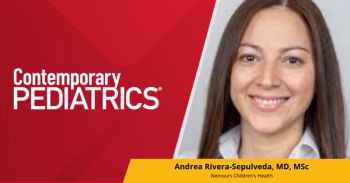
- August 2025
- Volume 41
- Issue 5
PNP Perspective: Evidence-based vaccine decision making
Donna Hallas, PhD, PPCNP-BC, CPNP, PMHS, FAANP, FAAN, shares her thoughts on the role PNPs play in vaccine education for parents and caregivers.
The August 2025 issue of Contemporary Pediatrics, “Back to School, BACK TO HEALTH,” succinctly identifies the 4 major health care foci for children returning to school: assessments of vaccination status and vaccine updates; asthma management; mental and behavioral health care; and care management for young athletes. Each of these is important and collectively, are a major portion of each back-to-school histories and physical examinations and care management plans. However, my focus for this commentary is on adequate protection against vaccine-preventable diseases (VPD) for our patient populations, which includes all infants, children, adolescents, and young adults via a personal and practice commitment by all pediatric nurse practitioners (PNPs) to administer vaccines via the evidence-based standards of practice.
Threats to evidence-based practice
Prior to 2025, vaccine research findings were initially evaluated by scientific experts at the Food and Drug Administration (FDA), who then recommended decisions about the safety and efficacy of drugs based on an extensive review of the results of research studies on the drugs. The next step was the review by expert members of the Advisory Committee on Immunization Practices (ACIP) of the research and FDA findings to clearly identify the evidence-based standards for vaccine management for all pediatric-aged patients. The outcome was the trustworthy analysis by the Centers for Disease Control and Prevention (CDC) to publish the updated annual vaccine schedule. Through 2024, the information published by ACIP and the CDC were reliable resources for vaccine administration. However, in 2025, with numerous changes in the members of ACIP and the CDC, information from ACIP and the CDC is no longer a reliable resource for the best available, evidence-based, scientifically supported vaccine practices.
On August 19, 2025, the American Academy of Pediatrics (AAP) published evidence-based vaccine recommendations based on scientific data that clearly support evidence-based vaccine practices.1 In addition, information from The Red Book 2024-2027, which is the gold standard for the management of pediatric infectious diseases with a strong focus on vaccine recommendations, was also included in the AAP vaccine recommendations. The AAP recommendations are designed to protect the most vulnerable infants and young children and those with chronic illnesses, as well as all of our pediatric populations. The recommendations differ from the CDC recommendations for the COVID-19 2025-2026 vaccines, as well as the influenza and respiratory syncytial virus (RSV) vaccines.1 I highly recommend reviewing the AAP 2025-2026 vaccine recommendations to ensure that each of our patients receives vaccines as recommended.
PNP practice
PNPs have a professional and ethical responsibility to provide care to all pediatric, adolescent, and young adults that is scientifically validated through rigorously designed and meticulously conducted research studies. Our responsibilities include reviewing all data in evidence-based studies and the recommendations for practice. Our professional commitments to our pediatric patients and their parents require us to adhere to providing care using the best available evidence to protect all our patients from acquiring VPDs. Providers who fail to implement best practices based on incorrect information are accountable for their actions, which have a high potential for causing harm to our patients. We are educated to assess the evidence and make decisions using the highest level of clinical judgment. We are also educated to provide parents with information about best practices to enable the parents to make informed decisions for the care of their children.
Many of us recall the devastating effects and the risk of death that children faced when they contracted diseases that today are vaccine-preventable. Even with the previous strong vaccine schedules, some parents refused vaccines for their children. As pediatric providers, we have witnessed the devastating effects on infants and young children whose parents have refused the influenza, COVID-19, and most recently the measles, mumps, and rubella (MMR) vaccines. We have also witnessed the devastating effects of meningitis in adolescents whose parents refused the vaccine. When we fail to provide vaccines to our pediatric populations, or when the benefits of vaccines are not supported by national efforts, we are failing our patients, their parents and families, and our profession. Our professional, moral, and ethical obligations are to provide the best available evidence-based care for all our patients and to incorporate informed decision-making in our conversations with parents.
Reference:
American Academy of Pediatrics. AAP recommends all young and high-risk children get vaccinated against COVID-19, diverging from CDC policy. American Academy of Pediatrics. August 19, 2025. Accessed August 23, 2025.
Articles in this issue
6 months ago
Congenital ear lesion in a 10-year-old girlNewsletter
Access practical, evidence-based guidance to support better care for our youngest patients. Join our email list for the latest clinical updates.








